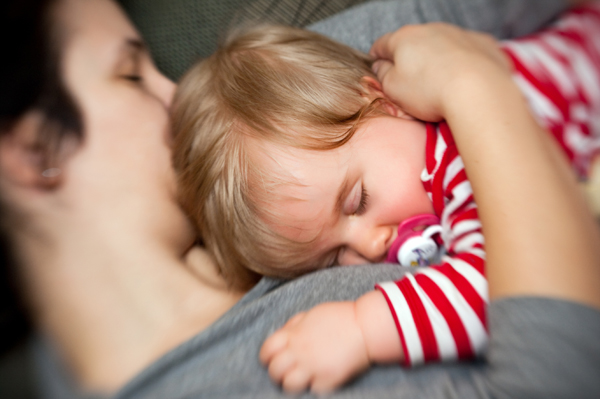'Childfree' Women Feel Little Distress, Study Finds

Get the world’s most fascinating discoveries delivered straight to your inbox.
You are now subscribed
Your newsletter sign-up was successful
Want to add more newsletters?

Delivered Daily
Daily Newsletter
Sign up for the latest discoveries, groundbreaking research and fascinating breakthroughs that impact you and the wider world direct to your inbox.

Once a week
Life's Little Mysteries
Feed your curiosity with an exclusive mystery every week, solved with science and delivered direct to your inbox before it's seen anywhere else.

Once a week
How It Works
Sign up to our free science & technology newsletter for your weekly fix of fascinating articles, quick quizzes, amazing images, and more

Delivered daily
Space.com Newsletter
Breaking space news, the latest updates on rocket launches, skywatching events and more!

Once a month
Watch This Space
Sign up to our monthly entertainment newsletter to keep up with all our coverage of the latest sci-fi and space movies, tv shows, games and books.

Once a week
Night Sky This Week
Discover this week's must-see night sky events, moon phases, and stunning astrophotos. Sign up for our skywatching newsletter and explore the universe with us!
Join the club
Get full access to premium articles, exclusive features and a growing list of member rewards.
Women who choose to be childfree feel more pressure to reproduce than other women without children, but they're less distressed about their childfree lifestyle than other non-moms, new research finds.
Unsurprisingly, women who wanted children but did not have them because of fertility or medical issues were the most distressed, according to the study published in the October issue of The Journal of Marriage and Family.
"Motherhood is so highly connected with adult femininity in the United States that many women feel that they need to be mothers," study author Julia McQuillan, a University of Nebraska-Lincoln sociologist, said in a statement. "Yet we also found that there are women who have low or no distress about not being mothers, even if their friends and family want them to have children."
The study comes out at the same time as a new book, "Why Have Kids: A New Mom Explores the Truth About Parenting and Happiness" (New Harvest, 2012), questions the portrayal of motherhood as the most important work a woman can do.
A life without offspring is becoming the reality for more U.S. women, with estimates suggesting that about 20 percent of American women exit their childbearing years without reproducing, according to 2003 data. (For comparison, 10 percent of women did the same in 1976.) Reasons include deliberate choice, infertility, financial concerns, educational and job demands or the lack of the right partner.
McQuillan and her colleagues queried a national sample of nearly 1,200 American women without children about their reasons as well as their experiences. They found that reasons for being childfree were tied with the importance women put on becoming mothers, which in turn was linked with distress over not having kids. Women who had medical reasons for not reproducing put more importance on having kids than other women in the study, and were the most distressed. [11 Big Fat Pregnancy Myths]
Pressure from friends, family and society to have kids caused distress only when women themselves considered motherhood important.
Get the world’s most fascinating discoveries delivered straight to your inbox.
The study also found that more religious women actually felt less pressured by social messages to have children compared with less religious women. Childfree-by-choice women had the highest family income of all the women in the study, while women with medical barriers to fertility had the lowest.
"This highlights that not all women without children are the same," McQuillan said. "While some may be devastated, others are content and finding fulfillment through other avenues such as leisure or career pursuits. Rather than assume that women without children are missing something, society should benefit from valuing a variety of paths for adult women to have satisfying lives."
Follow Stephanie Pappas on Twitter @sipappas or LiveScience @livescience. We're also on Facebook & Google+.

Stephanie Pappas is a contributing writer for Live Science, covering topics ranging from geoscience to archaeology to the human brain and behavior. She was previously a senior writer for Live Science but is now a freelancer based in Denver, Colorado, and regularly contributes to Scientific American and The Monitor, the monthly magazine of the American Psychological Association. Stephanie received a bachelor's degree in psychology from the University of South Carolina and a graduate certificate in science communication from the University of California, Santa Cruz.
 Live Science Plus
Live Science Plus










